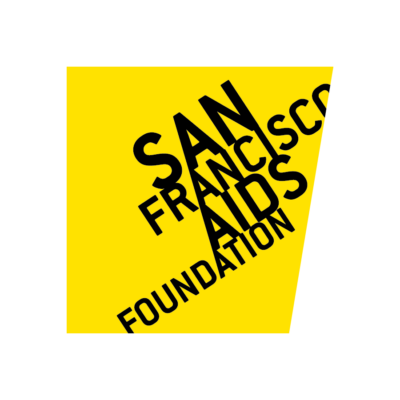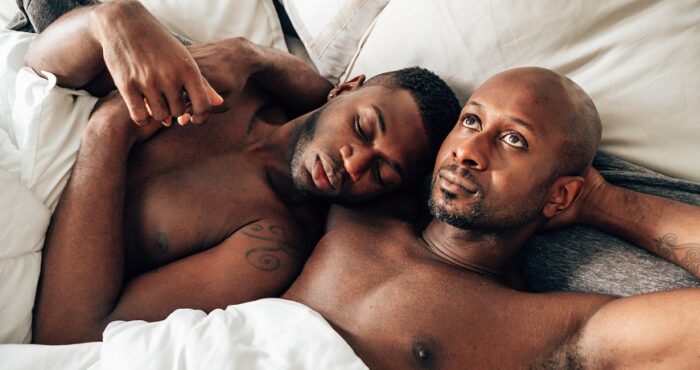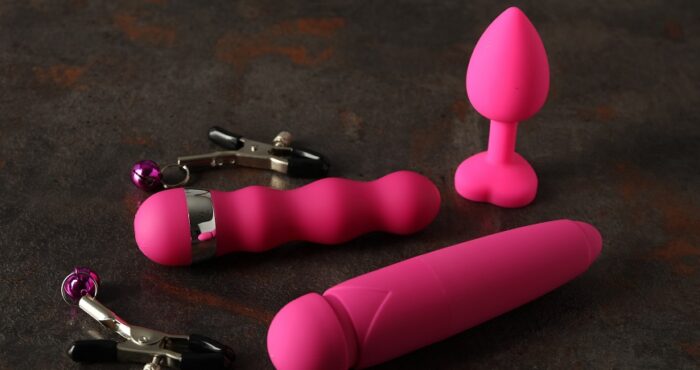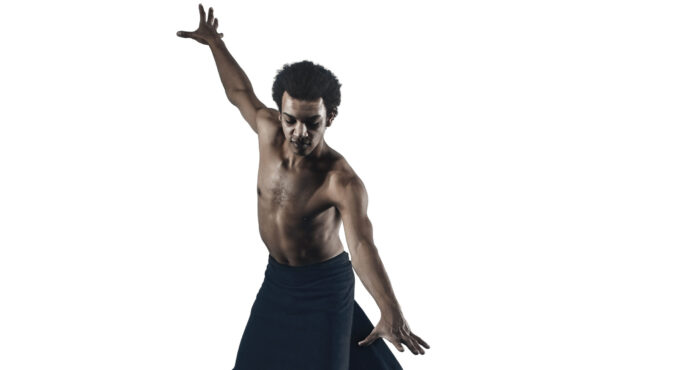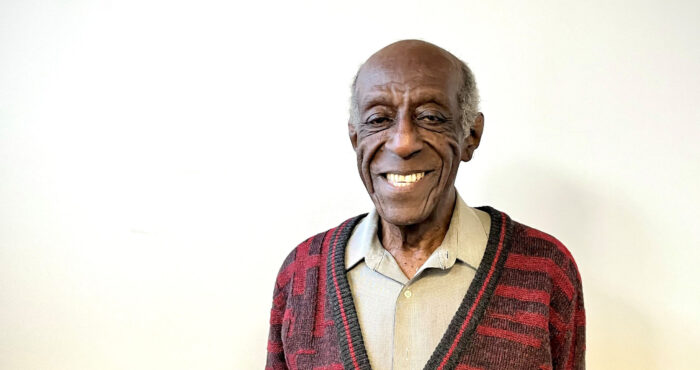Black men loving Black men is the revolutionary act
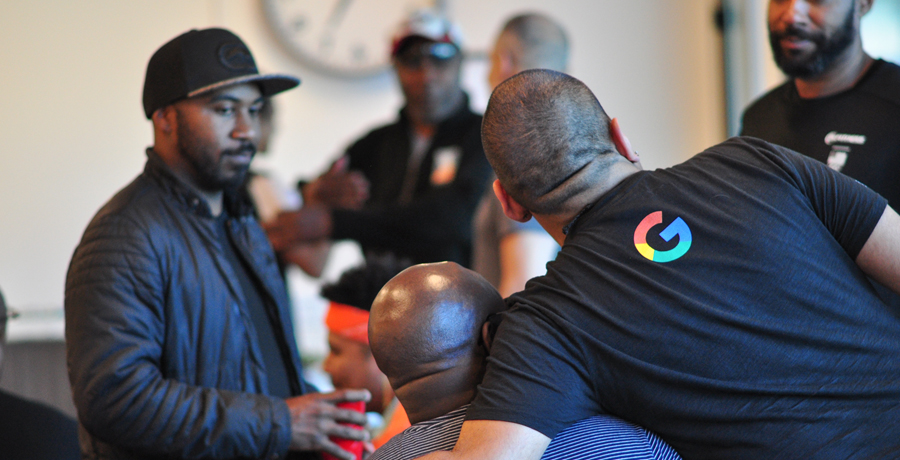
“The State (a euphemism for white people) has never been concerned with the welfare of Black people. It is not a matter of whether racism is intentional or unintentional. We die ‘by accident’ daily and the State is a witness who documents that demise… The current expectation of the Black community that the State would enter and mitigate our problems is a recent one. Thirty years ago we would not have had that expectation. The State, composed of suburbanites and people who have gentrified our neighborhoods, doesn’t give a damn about Black Gay men and IV drug users and it would be a fatal mistake if we were to relinquish our responsibility for AIDS in the Black community to such an external mechanism… Black men loving Black men is the revolutionary action of the 80s. So I say to you: What have you done for us lately?”
–Joseph Beam, excerpt from “Caring for Each Other,” Black/Out, Summer 1986
—
In an editorial for Black/Out in 1986, writer and activist Joseph Beam challenged Black communities to “ensure our own safety and administer to our own sick,” in response to the AIDS crisis and the failure of AIDS service organizations to reach Black communities.
In honor of National Black HIV/AIDS Awareness Day, San Francisco AIDS Foundation staff share their thoughts on Beam’s powerful words and why they still resonate to this day.
—
Traye Turner
Sometimes it feels like when Black and Brown people are positively impacted by progress in regards to the HIV epidemic, it’s sort of happenstance. It comes secondarily [to white communities]. It does feel like if we don’t help ourselves, if we wait for everyone else to come and help us, nothing will change. So it’s really empowering to feel the community from within supporting each other—as much today as it did probably in the early days of the epidemic.
Two weekends ago, I went to a networking brunch for young Black gay professionals. It was so inspiring to see an entire group of us take over a bar to cook and connect with each other. People had all kinds of backgrounds—there were teachers, people doing community work, people working in tech, bioengineers. I just remember looking around and thinking, ‘This isn’t what people think of when they think of Black men in the city.’ There are still so many misconceptions and stigma that need to be shattered.
It’s hard to counterbalance the good things in the Black community with all of the media attention that goes to the things that are rough, hard or play out in less than great ways. If you’re plugged into any Black groups, you’re going to be constantly hit with negative, traumatizing stories and images. It’s like, how can we contribute to showing the positive things that are happening?
Growing up Black and gay in our society means that you have layers of your existence that may be stigmatized. There are situations when you internalize colorism or internalize racism. There’s this whole ‘macho’ thing where if you’re gay it’s like, ‘oh, you’re weak or you’re a punk’. So you have this whole melting pot of things that are telling you you’re less than, you’re not worthy.
Being able to love each other and open ourselves up—just being vulnerable—is revolutionary. Intimacy isn’t something that men are able to express as much in our society. I mean it’s not like we’re in a place where men can’t cry, but there are still elements of that. If you’re going to hug another man it’s got to be a bro hug or a quick pat. Which is kind of unfortunate because it actually does take a lot of bravery and resolve to be open and authentic with yourself.
There’s a lot of validation and clarity that comes from being able to share your experiences with other Black men. I remember before I knew about Black Brothers Esteem [BBE] or DREAAM, I remember feeling like I needed a Black talk group or support group or something! Otherwise you don’t have a space to explore negative things that happen because you’re Black. You try to explain it to friends or other people and it just feels like they gaslight you or try to make it seem like it was your fault or it didn’t happen. So to be around other Black men, it can be like, ‘Oh, that happened to me too.’ You don’t have to explain yourself or justify your feelings about it.
Tony Bradford
In San Francisco, you feel like the low man on the totem pole as a Black gay man. Other men are looking for white, Latino and Asian men. Black men are last. Either that or we’re just fetishized. If I’m not a macho stereotype thug, what am I? That’s something I feel from my own community too. It’s not like it’s coming from only other communities.
With marriage equality, it still seems unusual to see two Black men together. You see two white men together, or maybe a white man with a Black man. You see white lesbians, but you don’t see Black women together. Something about Black men loving Black men is special, especially in San Francisco where there just aren’t that many Black folks. They have to overcome some of that macho shit that still lingers here in 2020.
A member of BBE, Stanley, shared his story of meeting the man of his dreams in BBE [as part of an SFAF video]. When you get somebody that’s on the same page as you, that believes what you believe and can stand in solidarity, in the Black community, that’s the revolution.
Part of what we do with programs like BBE is to stand tall with our brothers. It’s not just about HIV. It’s about how to be men, how to be Black men, how to be Black gay men who may be living with HIV—supporting each other.
I’ve seen the landscape in HIV change a lot over the years. There’s still a contingent of grassroots folks from our community that are committed to doing this work, but the circle is getting smaller. We’re talking about how to get younger Black folks to be engaged, because the Black community does have specific needs. But most are just focused on surviving in the most expensive city in the world.
Jamal Bey
I think that Black men loving Black men being a revolutionary act is still the same. I think Black people loving Black people is revolutionary. For all that Black men go through—particularly Black gay men, but Black men in general—just to love somebody for who they are is enough. That’s the baseline.
For all those who have been doing this work for a long time, we stand on the shoulders of people who died and we carry this work on. I stand on the shoulders of Black gay men who took me in, said, “We need you. This is what you need to do.” We need to continue that mentorship so that the work continues.
For a long time, there weren’t a lot of services for Black gay men. Black gay men have been aware of HIV since the start—for as long as Black gay men were dying of AIDS. But for a long time, many people saw HIV only affecting white gay men, and so thought, “That’s the gay disease. I don’t have to worry.”
Programs and institutions like the National Task Force on AIDS Prevention, the Black Coalition on AIDS, and Black Brothers Esteem (BBE) were established to show that this was happening to our people. For a long time, it seemed like it was just one tiny community doing the work to get information out about AIDS. It took a while to bring faith-based organizations on board, and get the heterosexual community into the game, because of stigma.
African Americans and Blacks have very specific needs. That’s why we need to be at the table, at the policy and advocacy level so that we’re driving policy and doing more than just responding. Representation is not just having images in the media. It’s having Black or Indigenous people in leadership. And in roles that influence advocacy and policy.
We absolutely still need spaces where the Black community can come together to support each other around HIV or other issues. Particularly in San Francisco, where the Black population is small but the rate of infection is three times our white counterparts. There are a whole host of stigmas that people experience. We’re trying to shift the conversation so that people who are undetectable can be ambassadors, and assist in helping others know their status and get to be undetectable.






